Genesis Recalls 90K Vehicles for Fire Risk

A new recall has been issued for numerous models in the Genesis family of vehicles, stretching all the way back to 2015 when about half of the vehicles in this safety alert were still named the Hyundai Genesis.
Trouble apparently stems from wiring connected to the car’s starter solenoid, a piece of technology with which most of us old-timers in the audience will be familiar thanks to janky wiring on hoopties from the ‘70s and ‘80s. Back then, more than a few of these starter solenoids were mounted on the inside fender of a car’s engine bay, making it a very convenient reach when it came time to cross the terminals with a bent and pitted chrome vanadium screwdriver during attempts to coax the beast into life.
No? Maybe that’s just me and a few box-body Crown Vics, then.
In any event, those days are long gone but starter solenoids are not – at least not on 90,907 Genesis vehicles including the 2015/2016 Hyundai Genesis, 2017 to 2019 Genesis G80s and G90s, plus the scattered 2019 Genesis G70. Safety wonks at the federal level claim the starter solenoid in these rigs could be contaminated with water if operated in abnormally wet conditions like as a flooded road. Moisture contamination within the starter solenoid could then cause an electrical short over time, leading to a possible overcurrent and subsequent conflagration.
As with any recall involving a fire, the brand is recommending parking these vehicles outside and away from structures until the recall is completed – but that’s a standard line invented by pencil necked bedwetting lawyers to cover the company’s interests. It’s easy low hanging fruit to write a bombastic headline shouting that GENESIS VEHICLES CAN’T BE PARKED INSIDE TAKE CARE BARB GOBBLESS because, whilst technically true, we feel the need to point out that wiring to a solenoid only carries electrical current whilst the driver is thumbing the Start button, not continuously. Yes, ok, better safe than sorry and all that.
The recall states recent models were given a protective boot on the starter solenoid magnetic switch as a running change in production during January 2019, explaining why newer model years are not affected by the recall. Interestingly, the remedy for this issue doesn’t involve retrofitting this boot but will be gifted a “remedy relay kit” in the engine junction box.
[Image: Genesis]
Become a TTAC insider. Get the latest news, features, TTAC takes, and everything else that gets to the truth about cars first by subscribing to our newsletter.

Matthew buys, sells, fixes, & races cars. As a human index of auto & auction knowledge, he is fond of making money and offering loud opinions.
More by Matthew Guy
Latest Car Reviews
Read moreLatest Product Reviews
Read moreRecent Comments
- W Conrad I'm not afraid of them, but they aren't needed for everyone or everywhere. Long haul and highway driving sure, but in the city, nope.
- Jalop1991 In a manner similar to PHEV being the correct answer, I declare RPVs to be the correct answer here.We're doing it with certain aircraft; why not with cars on the ground, using hardware and tools like Telsa's "FSD" or GM's "SuperCruise" as the base?Take the local Uber driver out of the car, and put him in a professional centralized environment from where he drives me around. The system and the individual car can have awareness as well as gates, but he's responsible for the driving.Put the tech into my car, and let me buy it as needed. I need someone else to drive me home; hit the button and voila, I've hired a driver for the moment. I don't want to drive 11 hours to my vacation spot; hire the remote pilot for that. When I get there, I have my car and he's still at his normal location, piloting cars for other people.The system would allow for driver rest period, like what's required for truckers, so I might end up with multiple people driving me to the coast. I don't care. And they don't have to be physically with me, therefore they can be way cheaper.Charge taxi-type per-mile rates. For long drives, offer per-trip rates. Offer subscriptions, including miles/hours. Whatever.(And for grins, dress the remote pilots all as Johnnie.)Start this out with big rigs. Take the trucker away from the long haul driving, and let him be there for emergencies and the short haul parts of the trip.And in a manner similar to PHEVs being discredited, I fully expect to be razzed for this brilliant idea (not unlike how Alan Kay wasn't recognized until many many years later for his Dynabook vision).
- B-BodyBuick84 Not afraid of AV's as I highly doubt they will ever be %100 viable for our roads. Stop-and-go downtown city or rush hour highway traffic? I can see that, but otherwise there's simply too many variables. Bad weather conditions, faded road lines or markings, reflective surfaces with glare, etc. There's also the issue of cultural norms. About a decade ago there was actually an online test called 'The Morality Machine' one could do online where you were in control of an AV and choose what action to take when a crash was inevitable. I think something like 2.5 million people across the world participated? For example, do you hit and most likely kill the elderly couple strolling across the crosswalk or crash the vehicle into a cement barrier and almost certainly cause the death of the vehicle occupants? What if it's a parent and child? In N. America 98% of people choose to hit the elderly couple and save themselves while in Asia, the exact opposite happened where 98% choose to hit the parent and child. Why? Cultural differences. Asia puts a lot of emphasis on respecting their elderly while N. America has a culture of 'save/ protect the children'. Are these AV's going to respect that culture? Is a VW Jetta or Buick Envision AV going to have different programming depending on whether it's sold in Canada or Taiwan? how's that going to effect legislation and legal battles when a crash inevitibly does happen? These are the true barriers to mass AV adoption, and in the 10 years since that test came out, there has been zero answers or progress on this matter. So no, I'm not afraid of AV's simply because with the exception of a few specific situations, most avenues are going to prove to be a dead-end for automakers.
- Mike Bradley Autonomous cars were developed in Silicon Valley. For new products there, the standard business plan is to put a barely-functioning product on the market right away and wait for the early-adopter customers to find the flaws. That's exactly what's happened. Detroit's plan is pretty much the opposite, but Detroit isn't developing this product. That's why dealers, for instance, haven't been trained in the cars.
- Dartman https://apnews.com/article/artificial-intelligence-fighter-jets-air-force-6a1100c96a73ca9b7f41cbd6a2753fdaAutonomous/Ai is here now. The question is implementation and acceptance.



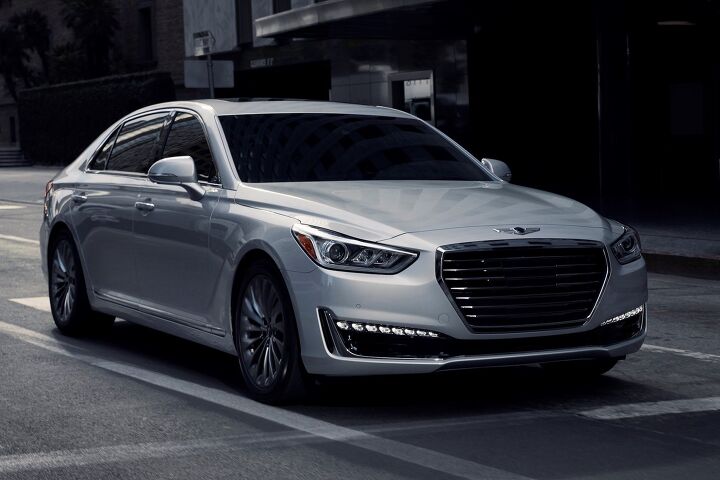















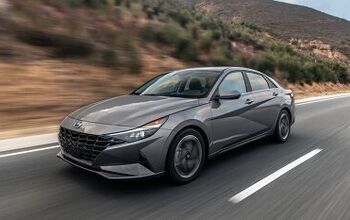
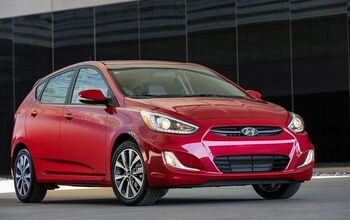
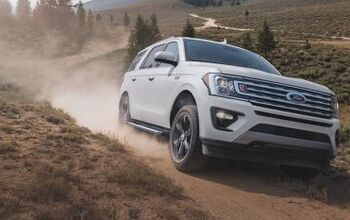
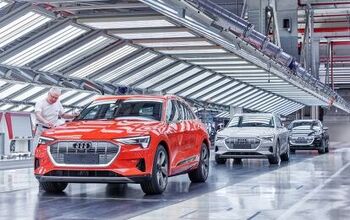
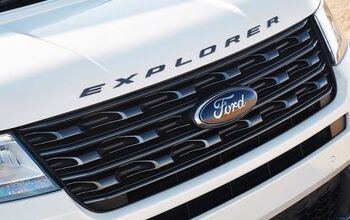










Comments
Join the conversation
"Safety wonks at the federal level claim the starter solenoid in these rigs could be contaminated with water if operated in abnormally wet conditions like as a flooded road."
Don't drive on flooded roads or "Turn around, don't down"
It sounds like just plain common sense to not submerge your fancy vehicle in a body of standing water, unless you're doing it for the insurance money because you bought more car than your subprime credit rating can afford to pay for.
I am curious about how they didn’t catch this while creating the cars…